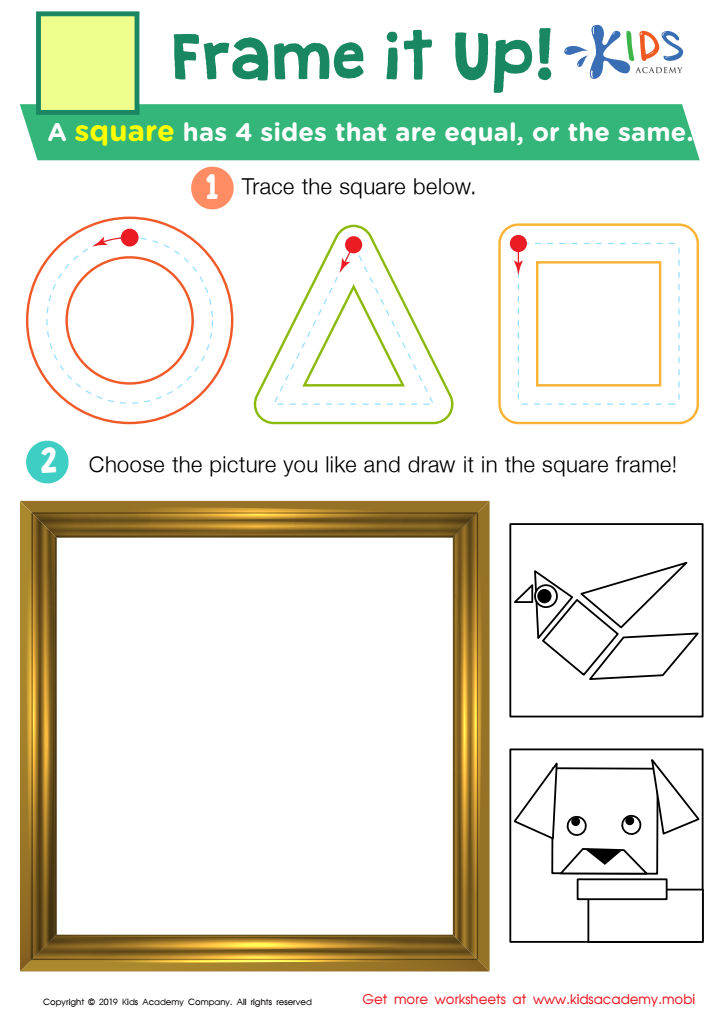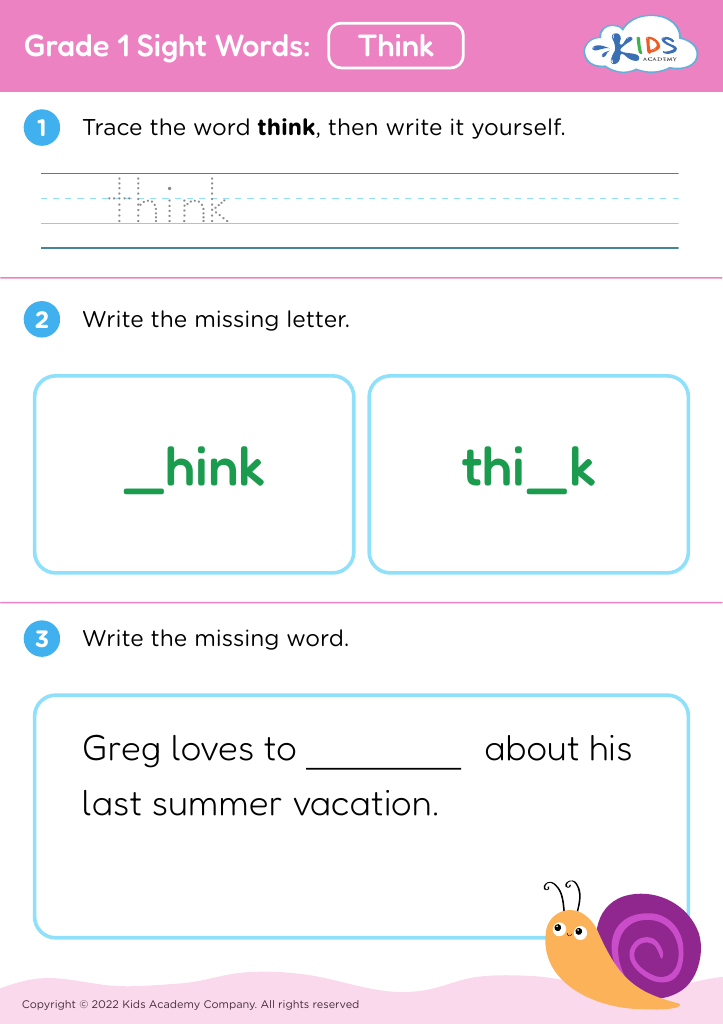Basic Addition Building Vocabulary Worksheets for Ages 6-8
3 filtered results
-
From - To
Unlock the potential of every young learner with our Basic Addition Building Vocabulary Worksheets for ages 6-8! These engaging and educational printables from Kids Academy blend fundamental addition skills with essential vocabulary building exercises. Tailored for early elementary students, each worksheet promotes a robust understanding of basic math concepts while enhancing language development through fun, interactive activities. Perfect for classroom use or home practice, our worksheets provide a comprehensive approach to learning, ensuring your child excels in both math and literacy. Explore our collection today and set the foundation for academic success and a lifelong love of learning!


Frame it Up Worksheet
Parents and teachers should prioritize building a basic addition vocabulary for children aged 6-8 because foundational math skills are crucial during early childhood. At this formative stage, understanding terms like "sum," "total," "add," and "plus" helps kids grasp the basic concepts of addition, fostering numeracy skills that are essential for later math learning and problem-solving.
First, a strong addition vocabulary aids in clear communication of math operations. When children understand math-specific words, they can follow instructions better and explain their thought processes, improving their overall comprehension and confidence. Second, mastering these terms early builds a solid groundwork for more complex mathematical concepts encountered in higher grades, such as multiplication, fractions, and algebra.
Third, a good grasp of math vocabulary contributes to improved mathematical literacy, leading to better academic performance across subjects. Math is integral to everyday life, from handling money to understanding time, making these skills invaluable. Finally, early positive experiences with math foster a growth mindset, encouraging children to approach more challenging concepts with enthusiasm rather than anxiety.
Therefore, focusing on basic addition vocabulary not only primes children for academic success but also equips them with critical life skills, making it a vital educational priority for parents and teachers alike.

 Assign to My Students
Assign to My Students




























